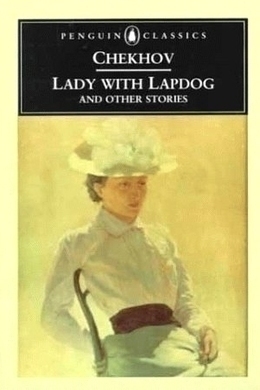
-
EPUB 290 KB
-
Kindle 344 KB
-
Support epubBooks by making a small $2.99 PayPal donation purchase.
Description
During the last ten years of his life, Anton Chekhov penned his great plays, spent time treating the sick, and wrote a small number of stories that are considered his masterpieces. The eleven stories collected here-The Lady with the Little Dog, The House with the Mezzanine, My Life, Peasants, A Visit to Friends, Ionych, About Love, In the Ravine, The Bishop, The Bride, and Disturbing the Balance-hail from this fertile period. They reveal a writer who, in response to the techniques of Symbolism and Impressionism, moved beyond nineteenth-century realism to become an innovator of the modern short story, influencing such key twentieth-century literary figures as Ernest Hemingway and William Faulkner.
285 pages with a reading time of ~4.50 hours (71474 words), and first published in 1899. This DRM-Free edition published by epubBooks, 2014.
Community Reviews
There are currently no other reviews for this book.
Excerpt
It was said that a new person had appeared on the sea-front: a lady with a little dog. Dmitri Dmitritch Gurov, who had by then been a fortnight at Yalta, and so was fairly at home there, had begun to take an interest in new arrivals. Sitting in Verney’s pavilion, he saw, walking on the sea-front, a fair-haired young lady of medium height, wearing a béret; a white Pomeranian dog was running behind her.
And afterwards he met her in the public gardens and in the square several times a day. She was walking alone, always wearing the same béret, and always with the same white dog; no one knew who she was, and every one called her simply “the lady with the dog.”
“If she is here alone without a husband or friends, it wouldn’t be amiss to make her acquaintance,” Gurov reflected.
He was under forty, but he had a daughter already twelve years old, and two sons at school. He had been married young, when he was a student in his second year, and by now his wife seemed half as old again as he. She was a tall, erect woman with dark eyebrows, staid and dignified, and, as she said of herself, intellectual. She read a great deal, used phonetic spelling, called her husband, not Dmitri, but Dimitri, and he secretly considered her unintelligent, narrow, inelegant, was afraid of her, and did not like to be at home. He had begun being unfaithful to her long ago–had been unfaithful to her often, and, probably on that account, almost always spoke ill of women, and when they were talked about in his presence, used to call them “the lower race.”
It seemed to him that he had been so schooled by bitter experience that he might call them what he liked, and yet he could not get on for two days together without “the lower race.” In the society of men he was bored and not himself, with them he was cold and uncommunicative; but when he was in the company of women he felt free, and knew what to say to them and how to behave; and he was at ease with them even when he was silent. In his appearance, in his character, in his whole nature, there was something attractive and elusive which allured women and disposed them in his favour; he knew that, and some force seemed to draw him, too, to them.
Experience often repeated, truly bitter experience, had taught him long ago that with decent people, especially Moscow people–always slow to move and irresolute–every intimacy, which at first so agreeably diversifies life and appears a light and charming adventure, inevitably grows into a regular problem of extreme intricacy, and in the long run the situation becomes unbearable. But at every fresh meeting with an interesting woman this experience seemed to slip out of his memory, and he was eager for life, and everything seemed simple and amusing.
One evening he was dining in the gardens, and the lady in the béret came up slowly to take the next table. Her expression, her gait, her dress, and the way she did her hair told him that she was a lady, that she was married, that she was in Yalta for the first time and alone, and that she was dull there…. The stories told of the immorality in such places as Yalta are to a great extent untrue; he despised them, and knew that such stories were for the most part made up by persons who would themselves have been glad to sin if they had been able; but when the lady sat down at the next table three paces from him, he remembered these tales of easy conquests, of trips to the mountains, and the tempting thought of a swift, fleeting love affair, a romance with an unknown woman, whose name he did not know, suddenly took possession of him.
He beckoned coaxingly to the Pomeranian, and when the dog came up to him he shook his finger at it. The Pomeranian growled: Gurov shook his finger at it again.
The lady looked at him and at once dropped her eyes.
“He doesn’t bite,” she said, and blushed.
“May I give him a bone?” he asked; and when she nodded he asked courteously, “Have you been long in Yalta?”
“Five days.”
“And I have already dragged out a fortnight here.”
There was a brief silence.
“Time goes fast, and yet it is so dull here!” she said, not looking at him.
“That’s only the fashion to say it is dull here. A provincial will live in Belyov or Zhidra and not be dull, and when he comes here it’s ‘Oh, the dulness! Oh, the dust!’ One would think he came from Grenada.”
